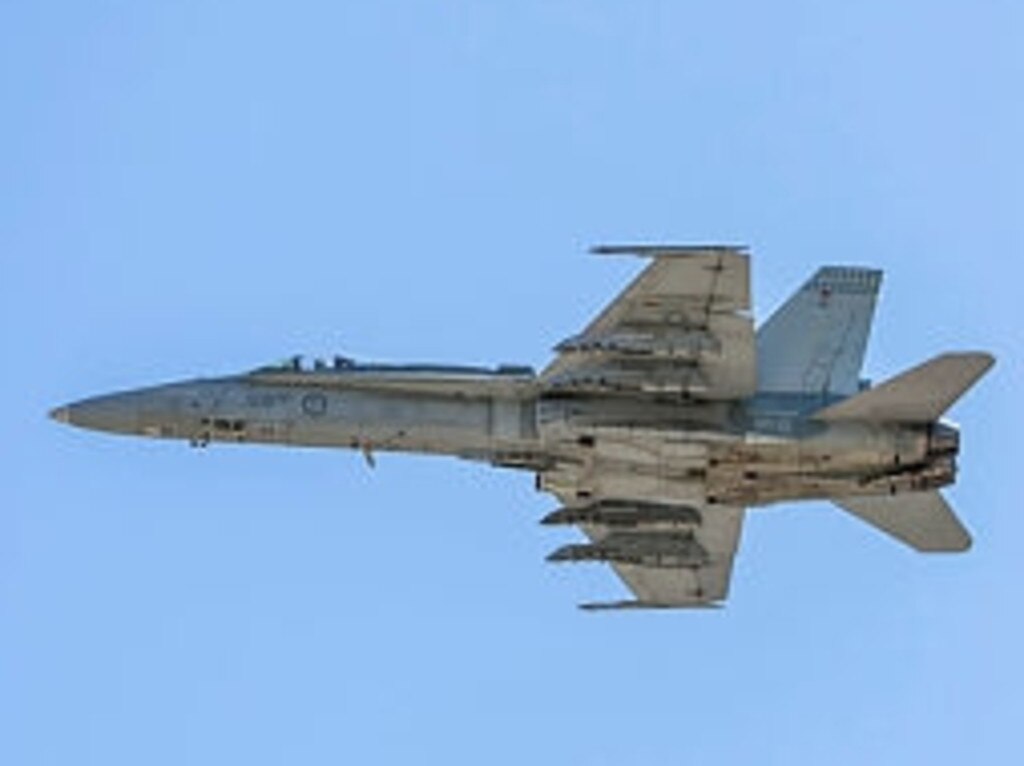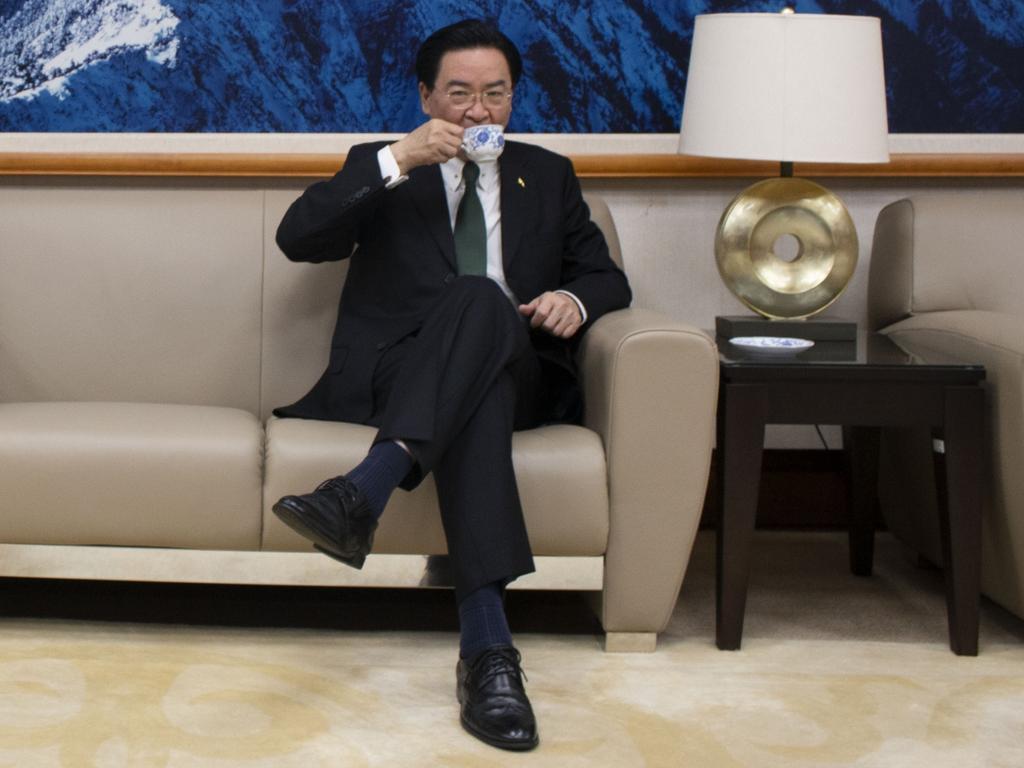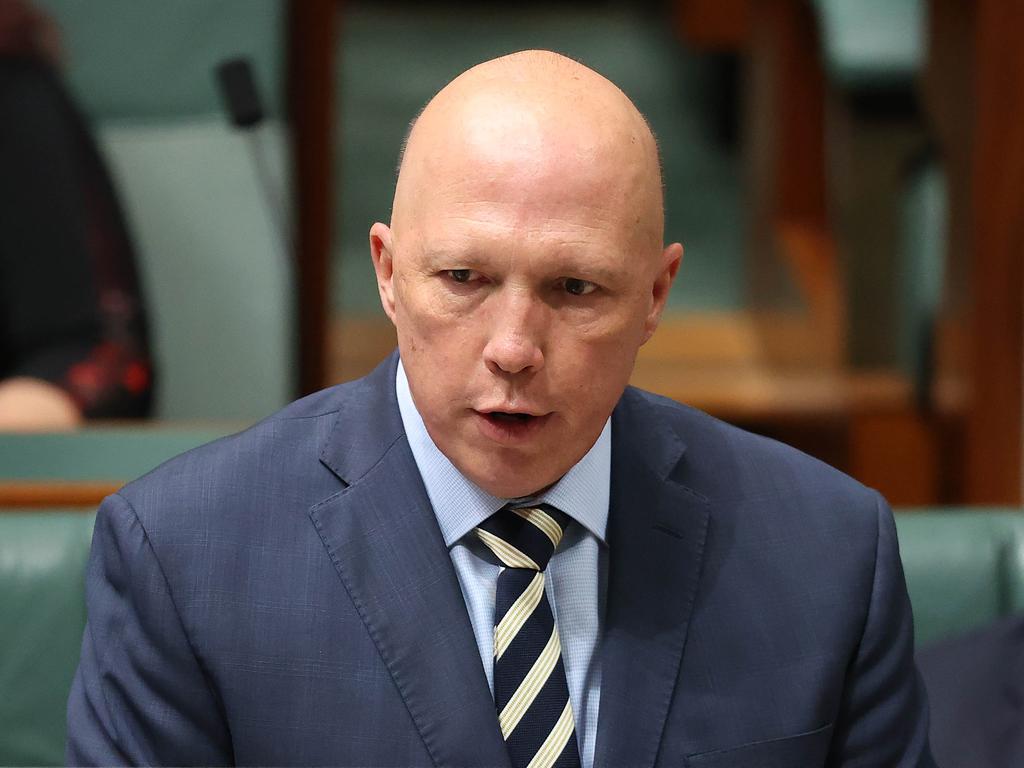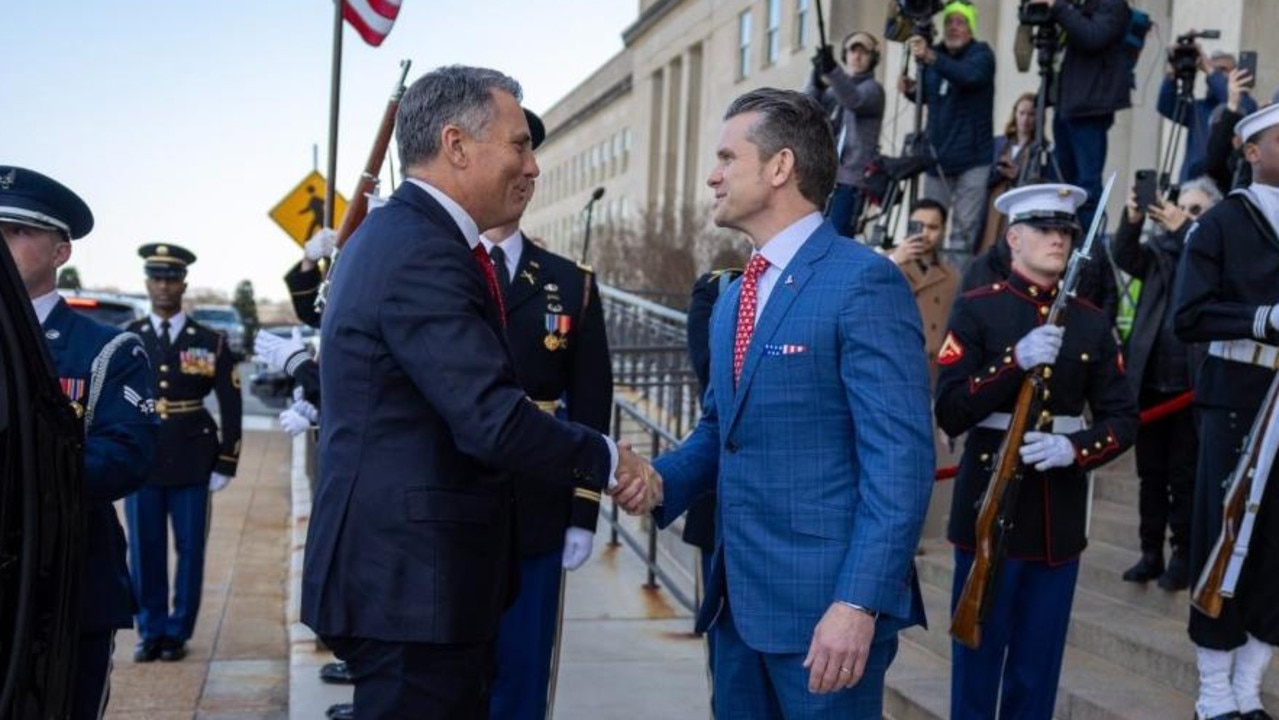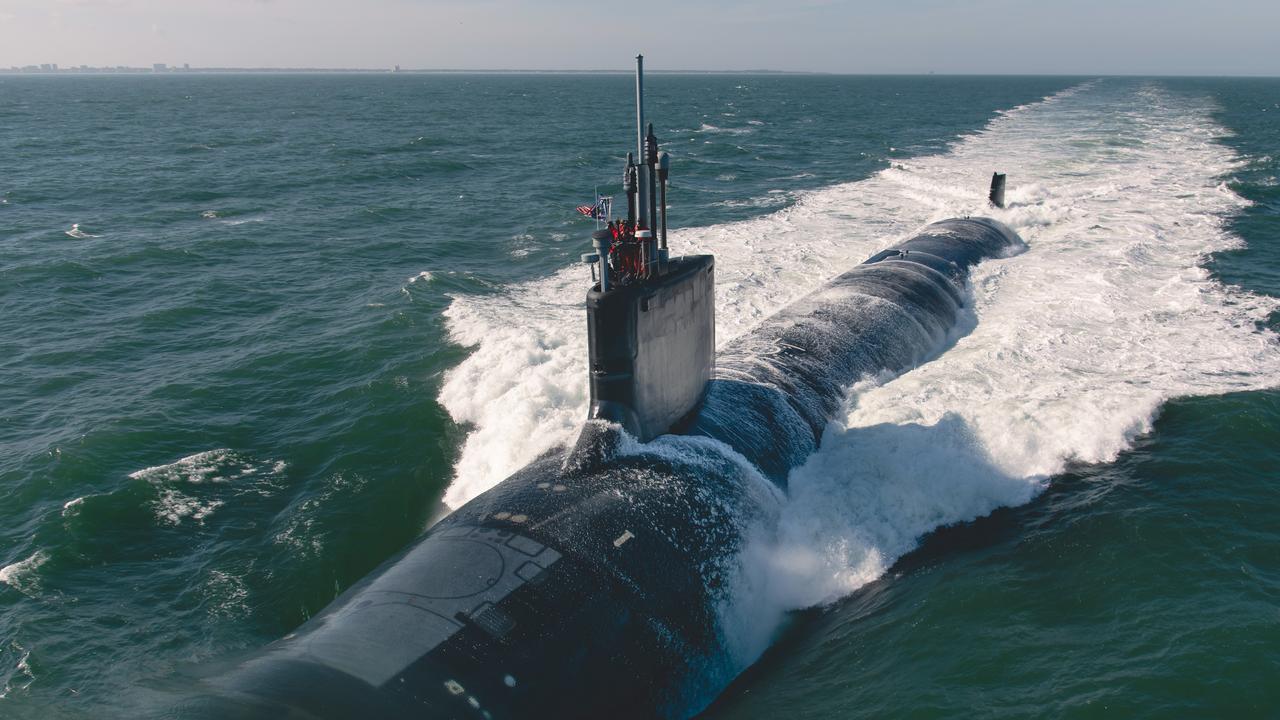It’s in China’s interest to work with Australia: US Indo-Pacific affairs co-ordinator Kurt Campbell
China’s campaign of ‘economic warfare’ will fail to bring Australia ‘to its knees’, Joe Biden’s top Indo-Pacific adviser says.
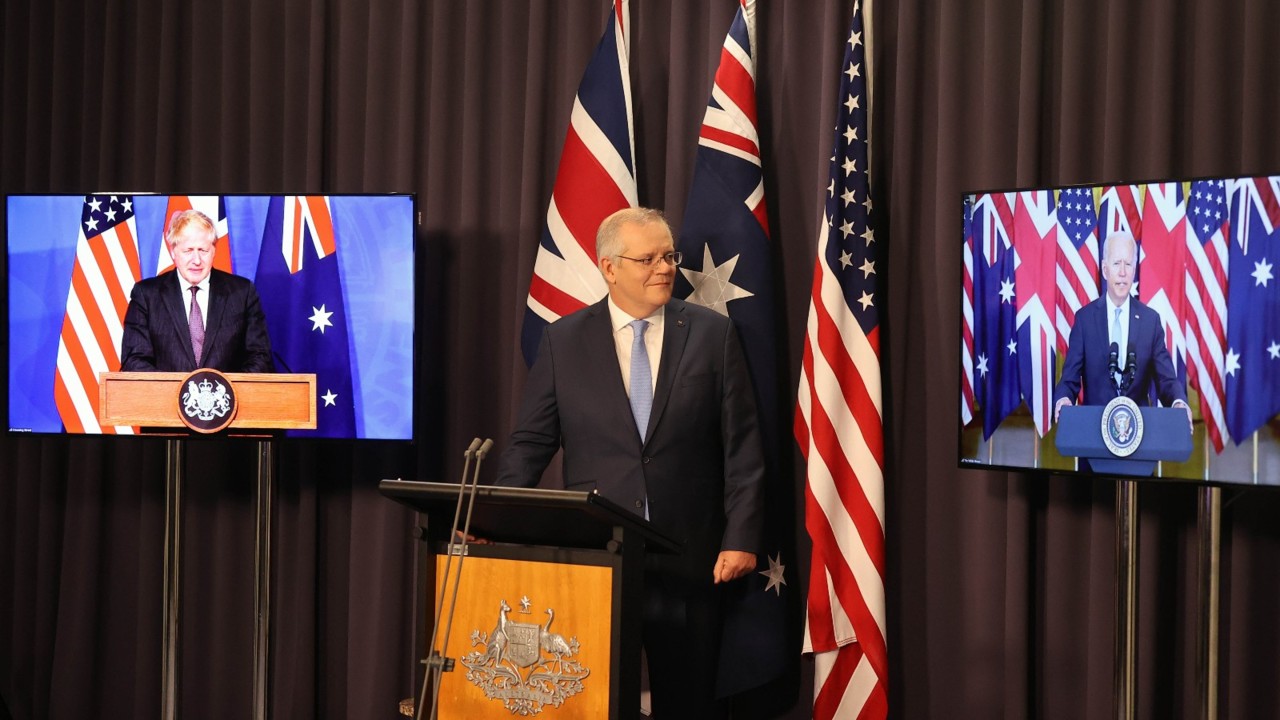
Joe Biden’s top Indo-Pacific adviser says China’s campaign of “economic warfare” will fail to bring Australia “to its knees” and Beijing will eventually be forced to re-engage on Australia’s terms.
Kurt Campbell said the AUKUS partnership to help Australia build nuclear submarines would be one of the Biden administration’s most significant achievements, paving the way for a new “strategic intimacy” between the allies.
Mr Campbell told the Lowy Institute’s Indo-Pacific Operating System conference that Mr Biden was “clear and animated” about China’s economic coercion in his recent meeting with Xi Jinping, suggesting its $20bn trade strikes targeting Australian exports were “backfiring” due to Australia’s resolve.
“I think China’s preference would have been to break Australia, to drive Australia to its knees, and then find a way forward,” the White House’s Indo-Pacific Coordinator said.
“I don’t believe that is going to be the way that it plays out. I believe that China will engage because it is in its own interests to have a good relationship with Australia. I believe that will happen naturally.
“I think China is a country that deep down fundamentally respects strength, fortitude and resilience, and I can’t imagine a country that has demonstrated that more clearly than Australia.”
Mr Campbell said Australia had a “deeply significant strategic role to play both globally and in the Indo-Pacific”, not merely as an “adjunct to Washington”.
He said the AUKUS mission to help Australia obtain nuclear submarines would be an “enormous challenge” considering the nation’s lack of a domestic nuclear industry, and declined to rule out the emergence of “insurmountable” roadblocks.
But the Biden administration would help Australia obtain the right nuclear submarines “at the nearest possible destination time” because it was persuaded of Australia’s determination and commitment to the plan, he said.
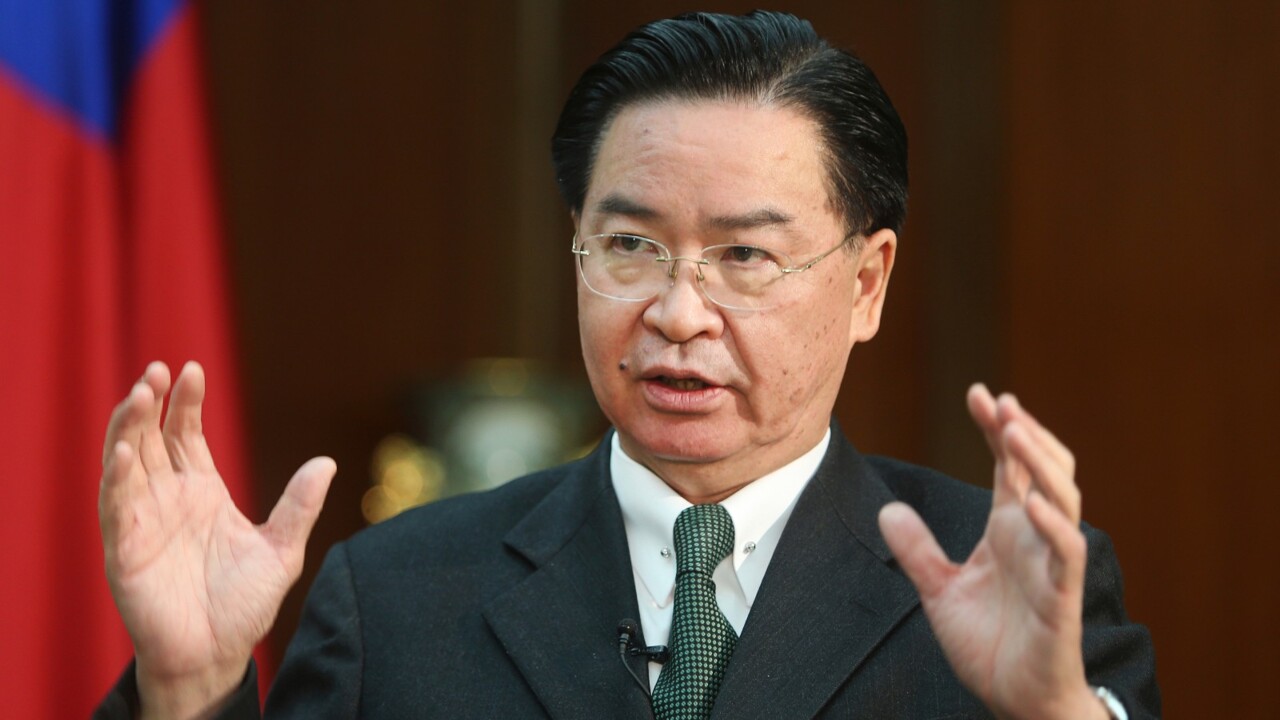
“I believe it will be among the most significant things that we accomplish,” Mr Campbell said.
“And I think in 20 years it will be taken as a given that our sailors sail together, our submarines port in Australia, and people will say, ‘well gee, hasn’t it always been that way?’ No, it was started with the vision of Australia, of Great Britain and the United States to drive this forward.
“If we ran into roadblocks that were insurmountable, those would be identified. But I think the expectation and the belief is that our three countries will work together towards this objective.
“We were able to do this 70 years ago with Great Britain, and the expectation is we will be able to do it again. I don’t think our leaders would have gotten behind it if we didn’t think it was a more achievable goal.”
He said the AUKUS alliance between Australia, the US and UK would not undermine the sovereignty of Australia’s military forces, but would enable “the deepest, most profound kinds of engagements” to help Australia and its naval personnel master nuclear technology. “That’s going to be extraordinarily important. And it ultimately is going to lead to a kind of strategic intimacy that we think is going to be very important,” he said.
More Australian port visits by US submarines were also on the cards, he said, while Australian sailors would be able to serve on US vessels.
Mr Campbell said the US, together with Australia and the UK, were determined to “stand up” to Chinese coercion and assertiveness, but declined to comment on a recent statement by Defence Minister Peter Dutton committing Australia to supporting the US in a war with China over Taiwan.
He said the US policy of “strategic ambiguity” in Taiwan had not changed, but nor had its congressionally mandated responsibility to support peace across the Taiwan Strait.
Mr Dutton, in an address to the Lowy Institute’s conference on Thursday, will declare Australia’s relationship with the US is “the strongest it has ever been”, and the AUKUS nuclear submarine plan a “massive step forward in Australia’s capability”.
Australia will work with the US to establish “a combined logistics, sustainment and maintenance enterprise to support high-end warfighting and combined military operations in the region”, he will say. Mr Dutton will also say Australia’s relationships with Japan, South Korea and India are at historic highs.
“The Indo-Pacific we seek has Australia as a strong and reliable partner a nation that more than lifts its weight,” he will say.


